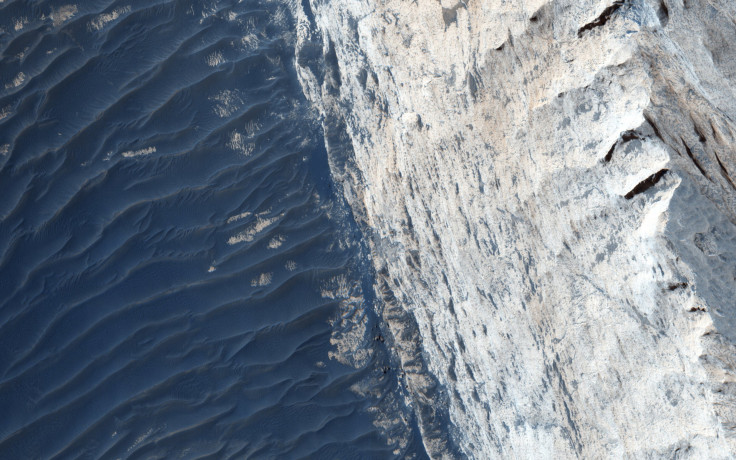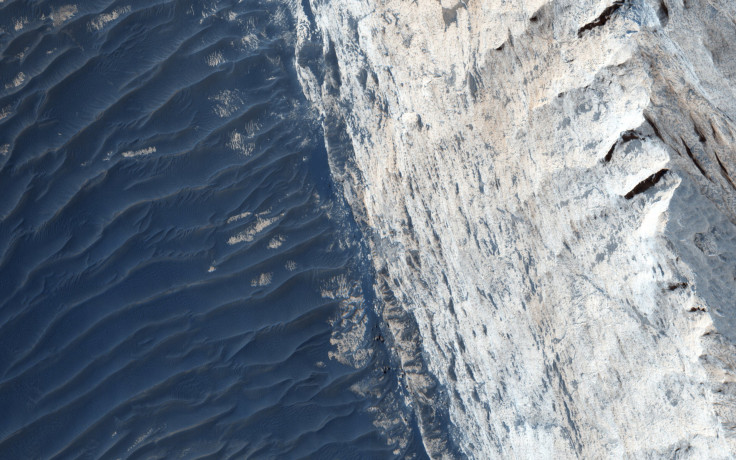Can Mars Support Life? Water Was More Abundant On Red Planet Than Previously Known

Mars has repeatedly revealed surprises as scientists have continued to investigate the planet’s suitability for future human colonization. For example, we now know that while the Red Planet appears barren and lifeless, it previously held liquid water on its surface. But according to a recently released study, the amount of water was far greater than anyone thought.
Scientists at the University of Nevada, Las Vegas analyzed a mineral called merrillite found in Martian meteorites, according to a study published Monday in the journal Nature Communications. The mineral was formerly considered hard evidence that the ancient environment on the planet was dry and arid, but evidence showed some of it might have been converted from a different, wet mineral called whitlockite when asteroids hit the planet’s surface.
By performing shock and compression experiments on a synthetic version of whitlockite, scientists found that the mineral became “dehydrated” from the shocks, effectively forming merrillite.
“If even a part of merrillite had been whitlockite before, it changes the water budget of Mars dramatically,” Oliver Tschauner, professor of research in the Department of Geoscience at UNLV and co-leader of the study, said in a statement.
NASA’s Curiosity Rover, which has explored Mars and sent back data since 2012, found solid evidence for the existence of a liquid lake about 3.5 billion years ago in the planet’s Gale Crater. Flash forward billions of years and, thanks to an extremely thin atmosphere, water on Mars now exists exclusively in the form of ice.
“The overarching question here is about water on Mars and its early history on Mars,” said Tschauner. “Had there ever been an environment that enabled a generation of life on Mars?”
The study was the first step in proving more abundant water supplies existed on Mars.
“The only missing link now is to prove that [merrillite] had, in fact, really been Martian whitlockite before,” Tschauner said. “We have to go back to the real meteorites and see if there had been traces of water."
Scientists have uncovered other surprises on Mars’ surface, as well. Researchers found that the planet’s landscape was far more complex than previously in a study published in February, describing it as “more Earth-like than moon-like.”

© Copyright IBTimes 2024. All rights reserved.





















